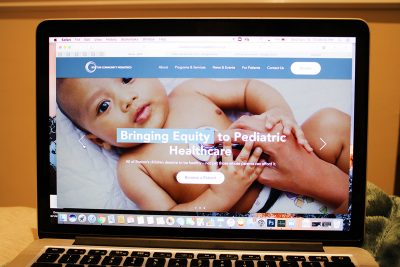Boston’s first private, nonprofit pediatric practice opened Monday in the South End — one of the first in the country.

The practice, Boston Community Pediatrics, is located at the corner of Albany and Wareham streets and aims to combat the increased health risks associated with minority status and poverty.
“The mission is really to bring equity to pediatric health care, and to provide all patients, regardless of income, regardless of socioeconomic status, regardless of race or ethnicity, the same high quality care that we would all want for our own children,” BCP founder Robyn Riseberg said.
Boston City Councilor Ed Flynn, who represents the South End, attended the practice’s opening ceremony.
“Quality health care for my youngest constituents won the day,” Flynn tweeted Monday night.
Two pediatricians work at BCP, although Riseberg said she plans to hire more as demand increases. She added that the practice is taking on new patients slowly in order to ensure quality care.
Riseberg said she hopes the success of her practice will demonstrate to the industry that equitable, nonprofit health care is financially sustainable.
The nonprofit model, Riseberg said, encourages families with varying levels of health insurance coverage to visit, as it allows for greater reimbursement of costs.
Typically, those on MassHealth, the state’s public care option, are reimbursed less for treatment than those with private coverage, said Wendy Pierce, a public relations representative for Riseberg. BCP aims to reimburse patients at a more equal rate.
The cost difference is supplemental income in the form of grants and private donations, Riseberg added.
Approximately 40 percent of all children in Massachusetts were covered under MassHealth, the public insurance option in Massachusetts, according to a 2015 report from the Boston Public Health Commission. The rest are mostly covered by their parents’ private insurance plans.
In Boston, that portion increases to 50 percent, with higher enrollment rates among East Boston, North Dorchester and Mattapan children — all of which had median household incomes below the Boston median and consisted of mostly Black and Hispanic residents in 2015, according to a 2017 report by the Boston Planning and Development Agency Research Division.
Riseberg said low-income children are three times less likely than their higher-income peers to have all their health needs met. Additionally, less than 15 percent of low-income children receive needed mental health services.
Low-income families, she added, have 86 percent more emergency room visits than higher-income households.
Riseberg said her practice’s devotion to patients and their families sets it apart from others.
“Everything that we are doing is patient-centered, patient-focused,” Riseberg said.
She added that BCP takes a more holistic approach to care than other practices.
“[We’re] really taking into account that it’s your physical health, your mental health and the social determinants of health that truly make up health,” Riseberg said. “If you’re not looking at all three of those areas, I think you can’t do it as well.”
Having worked as the chief of pediatrics at South End Community Health Center for eight years before leaving to start BCP, Riseberg said the nation’s response to the COVID-19 pandemic was an additional influence on her decision to begin a nonprofit pediatric practice.
“We haven’t figured out how to make people as healthy as they need to be. I think COVID has shown that,” Riseberg said. “Even just all of the racial inequality that exists in health care, we have not been able to tackle that as a society, and [BCP] is my answer to that.”





















































































































